It has become a popular trend among the directors of the Moscow schools to go hiking
Pavel Severinets, the director of Moscow school No. 444 with a strong focus on physics and mathematics, an experienced ecotourist and initiator of the ‘ДиректорВпоход’ (DirectorGoesHiking) programme, talks about the convergence in the environmental education, why the school’s flag appeared at the North Pole, how to teach ecology to children, and why he was invited to the Rosa Khutor tourist cluster by the ecotourism professionals.
You are one of the co-founders of the Association of travellers and directors of the Moscow schools. Please tell us about this organization. Are the heads of the Moscow educational institutions really so passionate about travelling?
Four years ago, we together with Matvey Shparo conceived an interesting programme ‘DirectorGoesHiking’. The programme is structured as follows: a group of schoolchildren from any school goes on a small hiking trip led by their director. We went to the mountains of the Krasnodar Territory and later on, the project was developed in Karelia. It is a week of active hiking under the supervision of highly professional instructors responsible for the touristic activity component. They explain the travellers how to set a camp, make a fire, cook food on a fire, and so on. And the director is a tutor, adviser, a person who shares his experience, his ideas about education, his management principles and is a coach for these boys and girls. That is, he analyzes the mistakes, shares with his management skills, observes how the team work goes, how the schoolchildren delegate their authority, exercise control, how they set goals and objectives for their team, and so on.
The ‘DirectorGoesHiking’ project has existed for three years, and almost 50 directors of educational organizations have taken part in it. The project has a preparatory stage: at first, the schoolchildren make an application, shoot a video, make a presentation, tell why they should go. Then, the qualifying stage takes place in the Sokolniki Park where each director can evaluate his physical abilities like carrying an over 20-kg backpack, orienteering, team-working, that is, he must really understand that this is not a fun, this is a really serious tourist event, and together with the schoolchildren. The first meeting with the boys and girls takes place in the Park, then he uses his potential at the camping site in Karelia or in the Krasnodar Territory, and then sums up and discusses what they succeeded in, and what they did not.
In total, just over 600 schools in Moscow and over 50 directors of the educational establishments have gone through this project, this is a very good result. It is worthwhile noting that not all of the heads had any tourist experience or went on hikes before participating in the project. For many of them, this was for the first time. And this has become popular and turned out to be an interesting, important, and bright experience for the directors. It has become a popular trend among the directors to go hiking and take part in such projects. It's great! And some directors went hiking to ‘test’ themselves, they left their ‘comfort zone’ and had a chance to look at themselves from the outside as ‘how good I am on a hiking trip, whether I can give up a comfortable ‘warm’ life in the city, and see how people live there, get food, arrange their life outside the apartment building, without the Internet’. Of course, there are some directors who went on hikes with their schoolchildren even prior to this project, or went in for hiking in their childhood, youth and when they became adult. And after returning last year from the ‘DirectorGoesHiking. Krasnodar’ project, we thought it was necessary to create a community of the like-minded people who see tourism as a tool to actively involve children in the environmental movement, improve their own skills, satisfy their drive for self-realization, give a try.
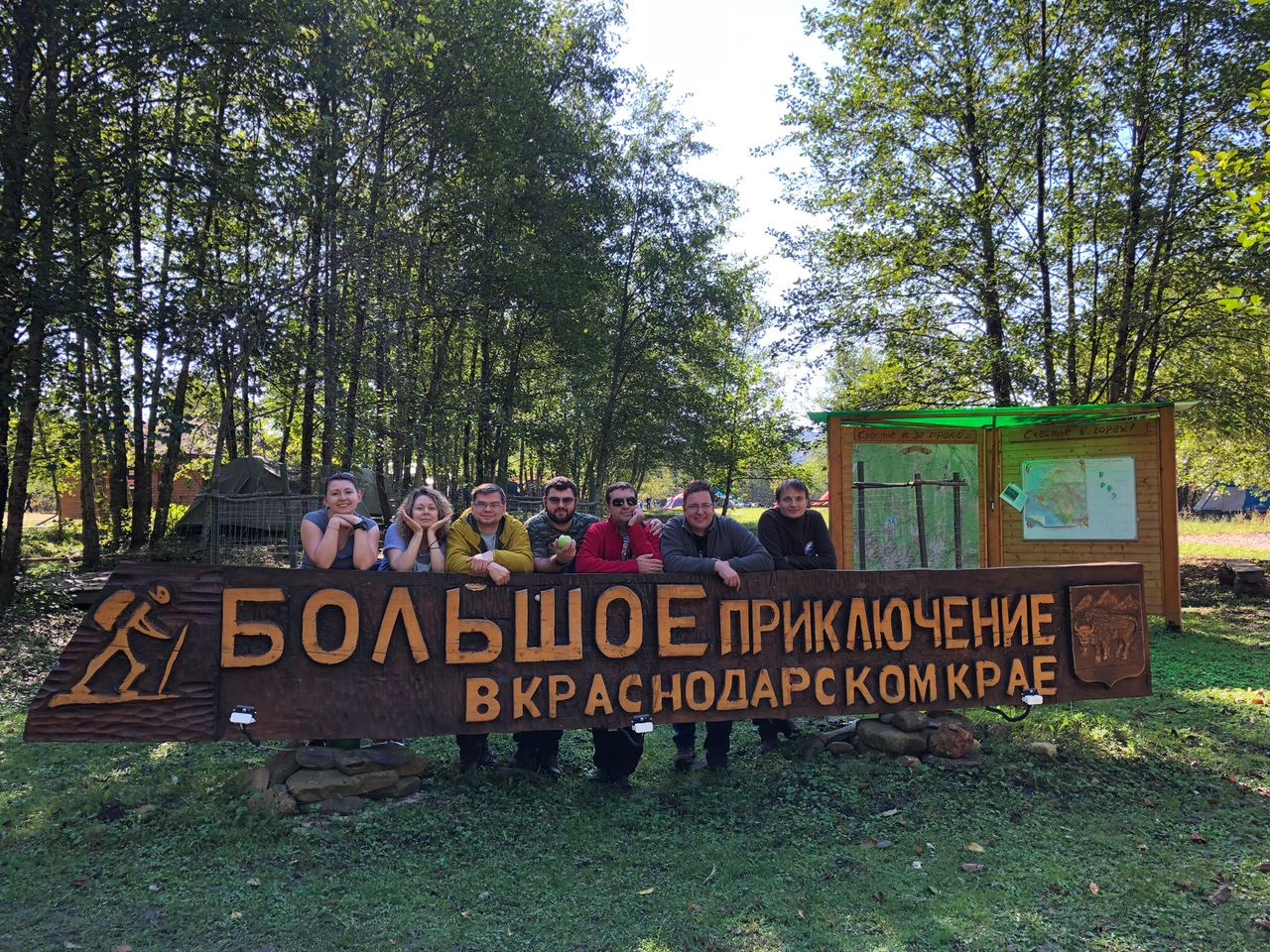
A hiking trip is a truly unique experience when you can show yourself in your true colours, as they say, the strengths and weaknesses, and your potential because it is always a kind of a stressful situation when a person is not in his traditional, natural way of living. We had been putting our mind to this issue, approaching this for a long time and finally, we decided to launch such an association. Ten such like-minded persons make a core. We have different travelling experience, all of us work in different educational organizations, but we have already announced this and invited other directors of the Moscow schools to join us. The Association was announced at a large city telephone conference. This project is carried out with the support of the Moscow City Department of Education, which, as far as we know and understand, also appreciates and believes in children’s tourism and its development. Therefore, I am sure that the project will expand, the number of participants will grow and tourism will again return as a mass line of activities to all the Moscow schools.
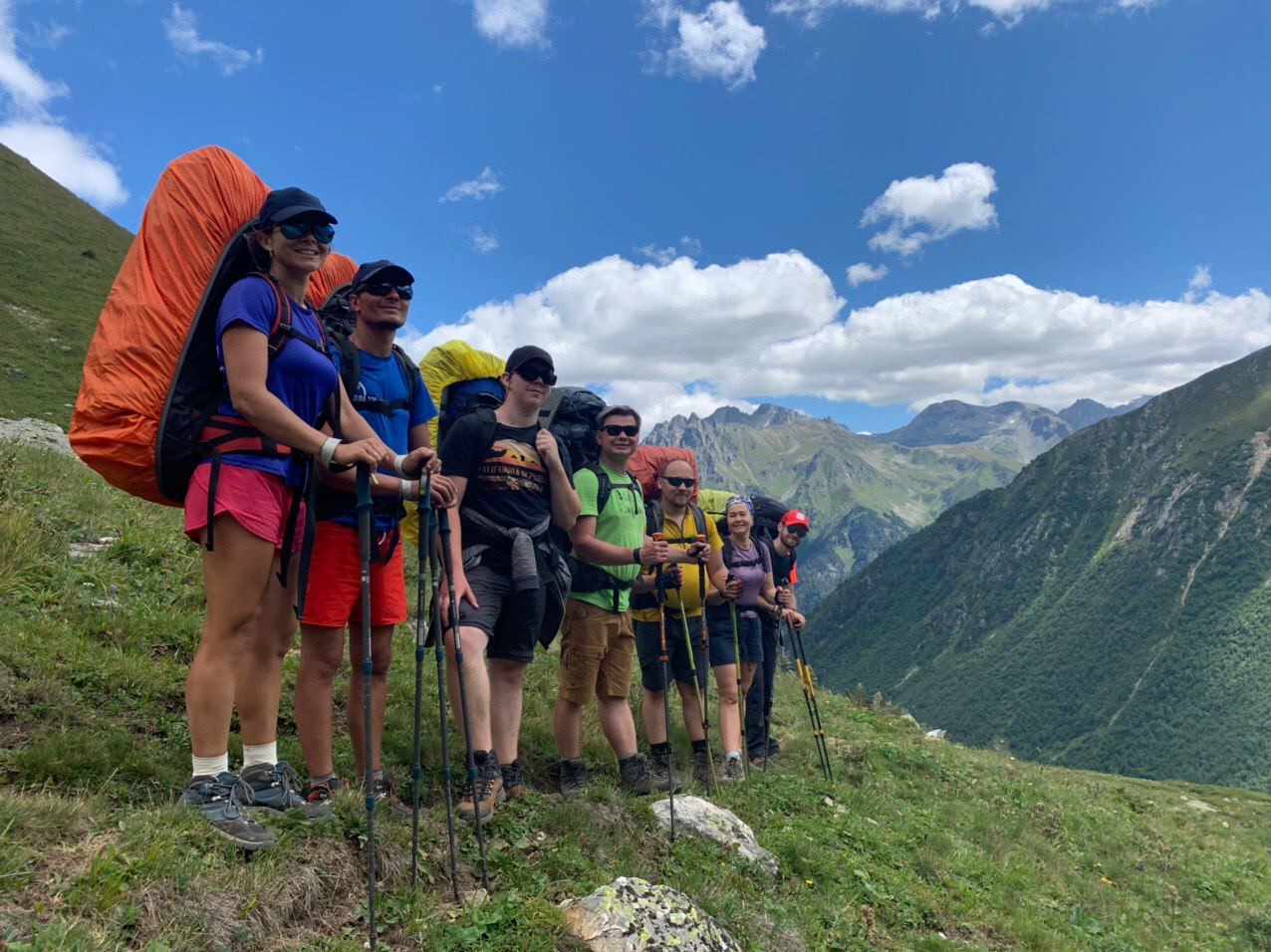
What tasks are solved when traveling with schoolchildren? Is it a local history event giving much knowledge, a kind of team-building, or a piece of the story line from the movie ’The Geographer Swallowed the Globe’?
Hiking trips and expeditions solve many problems and their exclusivity and uniqueness lie in this. First, people can prove their ‘hard skills’ and show their knowledge about the world around, physical processes, natural processes that everyone actually received during the education. Second, they can prove, of course, their ‘soft skills’ in the communication, interaction, teamwork, their ability to quickly improve their methods of work, learn something that they did not know before, the ability to create the mood. In today’s world, this is especially relevant and important.
Of course, a hiking trip is always team building. Everyone knows that everyday life upsets relations when people have to live together, cook, wake up, fall asleep, brush their teeth, spend a lot of time together and this often annoys. And the trip provides a great opportunity to remove these problems, learn to trust each other, communicate, interact, team up.
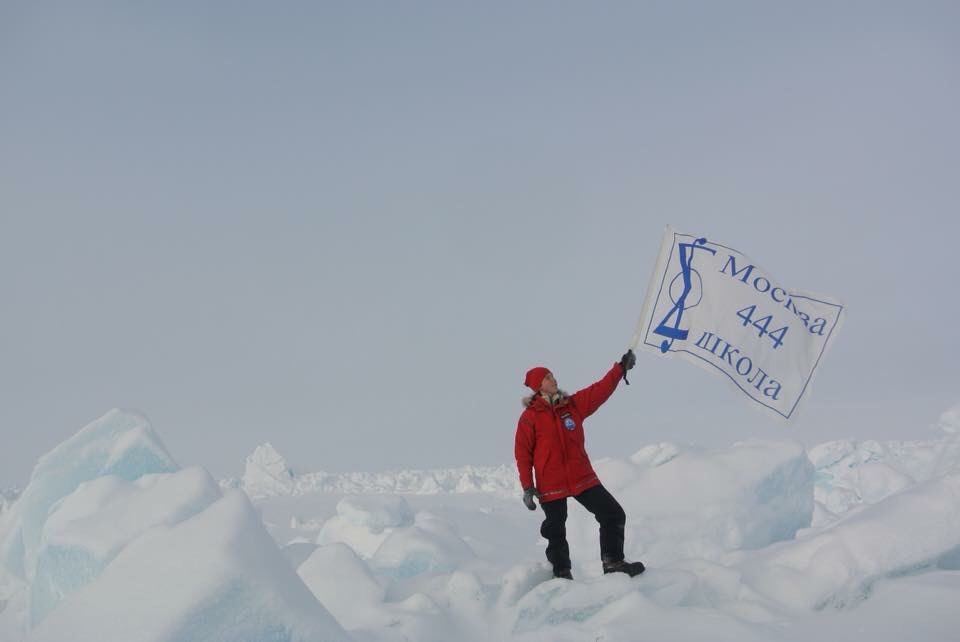
In addition, a hiking trip or even a ‘planned’ trip, as we call it, is very helpful, for example, in the local regional studies. This gives knowledge about the history. It gives an opportunity to learn about those events, about those historical monuments that are in this particular area. In that respect, the ‘The Path of the Hero’ project is of great importance when the children who study at the schools named after the heroes of the Soviet Union learned about the feat of a certain man - where he was born, how he actualized himself, where he studied, and then they travelled to the sites of battles, visited the grave of the person and, of course, this is their attitude to the heroic deeds that people performed during the Great Patriotic War.
We have practiced and are practicing the ecological tourism. In Karelia, we cleaned the area and camping sites so that people could stay there and enjoy their time. We went to Lake Baikal to clean the shores, talk about the ecology, visit the reserves, see how the protection of the environment is arranged and how important it is, and we discussed why we should strive to rationally utilize the natural resources and treat the nature with care. So, I have talked about why we take part in the ‘DirectorGoesHiking’ project – because this is an opportunity to improve our managerial skills, and it is also an opportunity to ‘manage the environment’, to work and do something useful for the nature. There is such a notion as the convergence of education. So, a hiking trip includes everything, it is so versatile, so flexible, so interesting from the point of view of its organization and implementation. A hiking trip, travelling, tourist outing or expedition give an opportunity to show all your abilities, skills, and knowledge. You can show your strengths and, in fact, what kind of person you are. For example, like Dasha Semeshkina from our school who participated in the Arctic expedition and hoisted the banner of school No. 444 on the northern peak of the planet and we are very proud of her.
In your opinion, are such trips a one-off event, just a passing fancy, or a hobby for the entire life?
A hiking trip can be a one-off even as a person can try hiking, go hiking one time and realize that it is not to his or her liking. The person can check own abilities in some other situations and leave the comfort zone in some other circumstances. This is also very cool. But typically, hiking is a hobby for the entire life. Some people become athletes and compete, and, accordingly, achieve higher results setting the bar high for themselves and taking part in the category hiking trips. Some people go hiking for pleasure, to see the beauty, to admire the nature, the culture of the country and the world. Some people go hiking from time to time, some go on a weekend trip with their family with a tent or kayak. At all events, travelling is an amazing experience, hiking is an opportunity to feel free, be away from the civilization and turn off the mobile phone.
And the number of routes, destinations, tourist attractions, places that a person can visit now is really enormous. In this sense, Russia is unique. Of course, we have such backwoods never before imprinted by the foot of man. But no matter how vast the country is, there is an opportunity to see something even in a neighbouring city, village, settlement. This is always a small trip that may be associated with some kind of adventures, events and opportunities that a person can discover in himself.
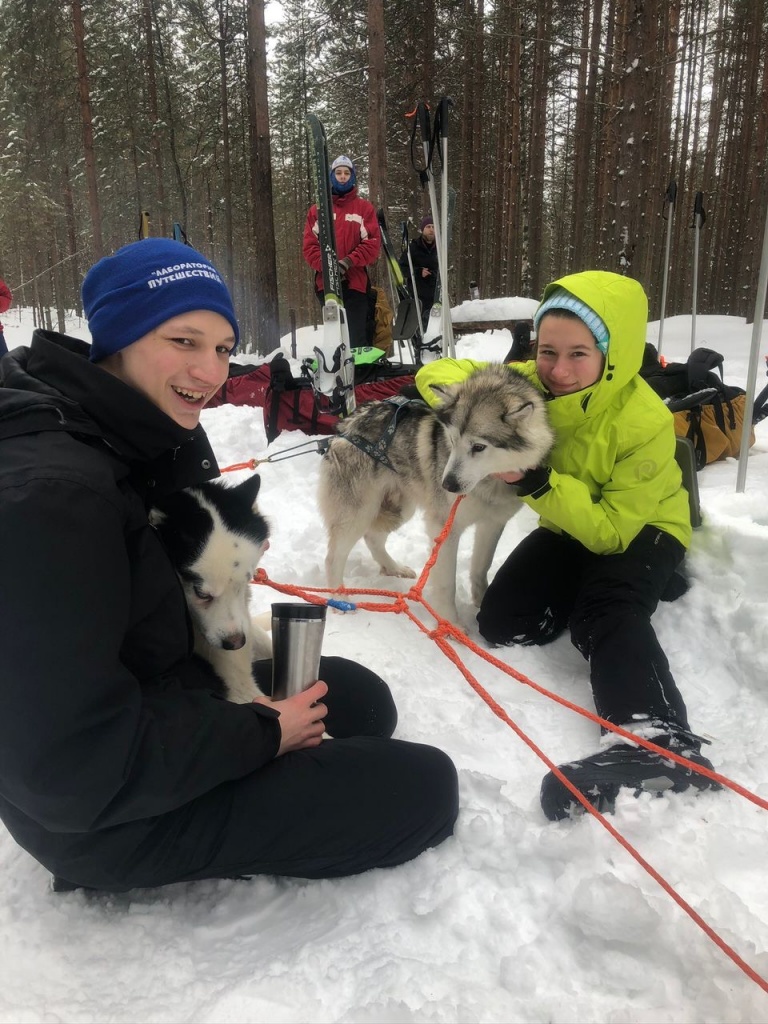
Tell us about the ecological camps on Lake Baikal. Is it a tribute to a popular trend?
The ecological camp on Lake Baikal is not a tribute to a popular trend. It is a project within the framework of our interregional co-operation. The Moscow's education system includes a project named the ‘mutual education of cities’, under which the schools from different regions interact, have an exchange of experience, tell about some lucky strikes in teaching, managing, and the teachers communicate. We are on friendly terms with a school in Ulan-Ude, Buryatia, and the result of our interaction was the initiative to hold such an ecological camp. In total, we have five regions co-operating upon friendly terms - Moscow, Kemerovo, Novosibirsk, Grozny and Ulan-Ude.
So, the schoolchildren from all these regions, from all these partner-schools flew to Ulan-Ude and lived together for almost a week and a half, made their projects, worked together and studied the unique ecosystem of Lake Baikal. We talked, of course, about environment, separate waste collection, rational utilization of the natural resources, about how people preserve the natural diversity, biodiversity, how they make sure that the nature protects its treasures. We got together in the Caucasus mountains to talk about this, we also discussed this with the schoolchildren in Novosibirsk Akademgorodok (Academic Town).
All this is of great importance now, and the processes around us tell us what we need to pay attention to. Many things show that the society expresses its interest in the environment as the violent dispute and fierce debate currently are observed in the society, including the huge dump ‘Shies’, which was supposed to be in the north, and the story in Bashkiria when the local community did not allow unscrupulous mining in the mountain.
It is extremely important to raise the standard of the ecological consciousness. Therefore, together with our schoolchildren we talk about the significance, importance and necessity of taking care of the world around us, we visit unique places in our country, we collect waste paper and caps to be recycled, we go to ecological camps and take part in the ecological campaigns held in Moscow, and implement the ‘ecological path’ programme in the Izmailovsky forest, and we believe that this is important.
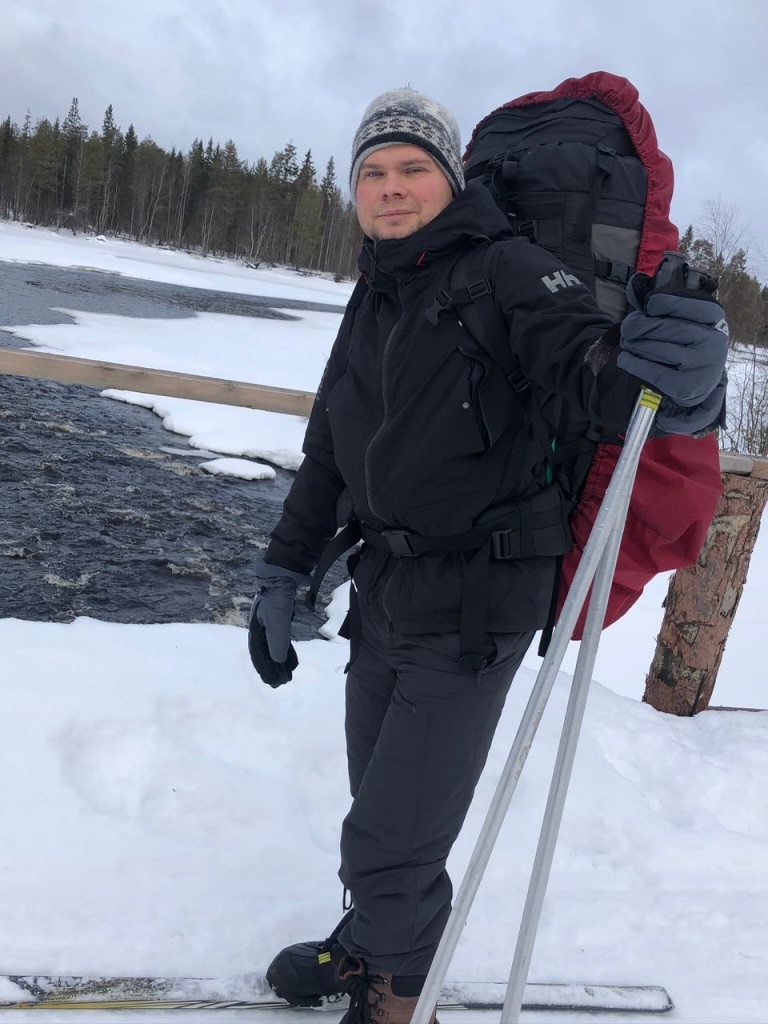
To your mind, what is the attitude of young people to the environmental problems today? What is your opinion about the today’s ecotourism enthusiasts? Do the teenagers and young people take any interest in ecotourism?
The people who are now enthusiastic about ecotourism, travelling and such expeditions are very different, but for the most part, they are well-educated people, as they say, intellectual, smart, talented, thinking about the future of the country, nature, and environment. Therefore, it is always pleasant to deal with such people. Are the teenagers interested in this aspects, I can honestly say - of course!
Well, on the one hand, there is such a thing as ‘fashion’ and ‘trend’, the ecotourism is now a really hot topic of the day that, on the one hand, determines the future, and on the other hand, is on top. At the same time, the teenage years are the best for looking for the answers to the questions that the young ask themselves, analyzing how the world around them exists, how people live. And very often, of course, there is a gap between what is said, how it should be and what it really is. It happens so when a child sees that all the garbage is being dumped into one container instead of separating it, a person is washing a car on the shore of a lake, or trees are being poached. Therefore, age and interest combined give an amazing result in terms of their active desire to change the world and participate in the ecological tours and projects.
For example, when we decided to arrange an ecological camp on Lake Baikal, we held a contest: the schoolchildren wrote the project and then defended it, and we really selected those who wanted to contribute to the protection of the environment, and the topic was of interest and relevant. There were a huge number of people who wanted to go to the camp, and not only because of the opportunity to visit Lake Baikal at the expense of their school.
I didn't even dream about seeing Baikal when I was at school. I looked at the map, at this beautiful blue lake of our country and thought, ‘My God, when will I get there.’ But since I visited Lake Baikal two years ago, I have already been there 4 times and, apparently, I will not be able to stop going to Baikal, I will go again and again to see the beauty of this wonderful lake.
Even the project activities at the school shows now that many people join the environment protection as well as waste collection and recycling, and this is important. And you understand that this topic is important, necessary and significant for the society and this, in fact, inspires with hope.
You are the director of one of the leading Moscow schools with a strong focus on physics and mathematics. In your opinion, how to organically enhance the school curriculum with the lessons about the environmental protection? And is it necessary to do this?
Well, the strong focus on physics and mathematics at our school in no way prevents us from thinking about the environmental problems, and on the contrary, it even helps, because the schoolchildren are the people who think, analyze and want to change something. But, nevertheless, I am absolutely sure that the environmental education is completely underdeveloped in our country. The school subject of ecology does not solve these problems, and even if it is studied somewhere, it cannot be considered enough. Even I went to school where the subject of ecology was studied in grades 10 and 11, but to be honest, I don’t really remember anything except for the ‘food chain’, although not much time has passed since.
That is why, I absolutely agree and we will, certainly, work in this direction - we need to introduce a very flexible and ‘non-intensive’ course that does not include much theory like at the Faculty of Ecology, but includes practical activity through various projects, through the organization of environmental actions, as well as through education, meetings, work and demonstration of what consequences of the anthropogenic pressure on nature are, what they can lead to and how the impact can be minimized.
Therefore, I am sure that as the curriculum and training courses become more versatile and more flexible, the education system of Russia and the capital’s schools will have more such projects. Maybe, they won’t run for a whole year, maybe, they won’t be discussed during the whole 45-minute lesson, and maybe, it will be some kind of integrated platform or a performance that can take place at a school and take two to three months, but the projects would create a responsible attitude to the nature and ecology of the Earth.
We need more practice like the participation in the environmental actions and environmental projects, discussions about what and how to preserve the best way. Moreover, the Izmailovsky Park is nearby and this is a unique resource for such work. It is necessary to continue our educational policy and educational activities aimed at the protection of the natural environment.
Forming an environmentally sustainable attitude should not be just part of a separate course, it should be a philosophy of the school life. In this respect, we have a lot to learn from the European countries, the United States, because, of course, these programmes must be active, they must involve the children in the work, in the activities so that they have an opportunity to do something on their own.
Once, we participated in the programme held by Mosenergosbyt that provides electric power to Moscow. They had a up-to-date information visit centre where the visitors could get to know how the energy is generated, what danger the mercury lamps pose, why the efficient energy-saving ones are good, how the energy is saved. Naturally, the schoolchildren learnt all this as part of a big game and got very good skills and a good understanding of how electricity comes to our apartments and why it must be saved.
You are a participant of the 3d International Conference ‘Natural Tourism: Global Challenges and Prospects of Russia’ to be held at the Rosa Khutor resort. What are your expectations from the event? What experiences and ideas are you going to share with your colleagues?
I am lucky to take part in the international conference that will be held at Rosa Khutor in Sochi, the Krasnodar Territory. As a matter of fact, I was invited by Matvey Shparo, a famous traveller. When he offered to speak at the conference, I thought ‘What can I offer?’ I am going there to share my experience and talk about how the environmental education, expeditions and tourism are organized at the Moscow schools, that there are no restrictions for the schools to be a centre of the environmental philosophy and a centre for tourism, travelling, studying the local lore and for the communication of children.
Our founder, the education department of the Moscow government, finances us, and the school - in accordance with the law - is absolutely free in managing priorities. Unfortunately, there is not always enough money, first of all, at many regional schools. The Moscow schools have enough money, but the school leaders do not have enough courage to act and go forward.
I hope that at the conference, we will be able to have discussions with the ecotourism experts, build relationships, establish contacts. Rosa Khutor tourist cluster is interesting to me from the point of view of the interaction, the organization of trips, travelling of our children, and the interaction with the reserve, because Rosa Khutor has a lot of interesting programmes and projects. Therefore, I am sure that the conference will be held at the highest level where it will be possible to make new acquaintances, talk about the problems of the children’s tourism, and perhaps, even propose the solutions to some problems.
About School No. 444 (Moscow).
Secondary school with a strong focus on mathematics, computer science, physics № 444.
On September 1, 1953, the ‘first bell’ rang at the school.
The first director of the school Valentina Dmitrievna Golovina (a teacher of mathematics, honored teacher of the RSFSR), and Semyon Isaakovich Shvartsburd (an educator, mathematician, corresponding member of the USSR Academy of Pedagogical Sciences (1968), doctor of Pedagogical Sciences (1972), Honored Teacher of the RSFSR (1962), the first K. D. Ushinsky-Prize winner awarded by the Academy of Pedagogical Sciences of the RSFSR, the author of works on the issues of extra curriculars, the introduction of the microelectronic technology into the educational process, author of the textbooks and teaching aids in mathematics for secondary educational institutions.
S. I. Shvartsburd had the idea of creating specialized schools with a strong focus on physics and mathematics in the USSR, for the implementation of which he was awarded the first prize named after K. D. Ushinsky.
School No. 444 was the first in the country (since 1959) to carry out initial vocational training in the ‘computer programmer’ specialty.
The school’s students regularly become winners and prizetakers of the All-Russian contests - Academic Olympics - not only in the STEM subjects, but also in the humanities.
The Chairman of the School's governing board: Arkady Dvorkovich, the graduate of school No. 444, President of the International Chess Federation (FIDE), co-chairman of the Skolkovo Foundation.






